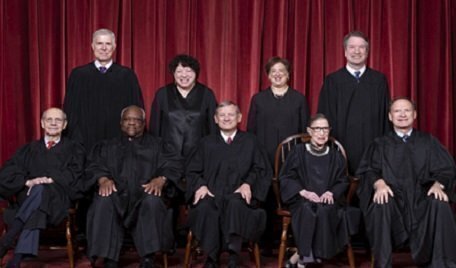On Monday, the Supreme Court said it will hear arguments in four new cases after October 2019, including an appeal about the sentence of D.C. sniper Lee Boyd Malvo and an immigration-related identify fraud dispute in Kansas.
 Also in its orders release, the Court denied an appeal in Aloha Bed & Breakfast v. Cervelli, a case where the owner of a Hawaii bed-and-breakfast establishment wanted the Court to overturn a lower court decision that said she wrongfully denied a room to a same-sex couple.
Also in its orders release, the Court denied an appeal in Aloha Bed & Breakfast v. Cervelli, a case where the owner of a Hawaii bed-and-breakfast establishment wanted the Court to overturn a lower court decision that said she wrongfully denied a room to a same-sex couple.
Among the cases accepted by the Justices, the appeal in Mathena v. Malvo involves the life-without-parole sentence of Malvo, who was convicted in the D.C. Sniper case and sentenced in 2004 for crimes committed under the age of 18. The Fourth Circuit Appeals Court ruled that later Supreme Court decisions indicated Malvo’s sentence should be reconsidered retroactively due to his age. The state of Virginia believes a state Supreme Court ruling conflicts with the Fourth Circuit’s decision.
In another case, Kansas v. Garcia, the Court will consider if a federal law, the Immigration Reform and Control Act (or IRCA), disallows states from using information taken from a federal work eligibility form to prosecute illegal immigrants suspected of identity fraud. The state of Kansas claims the same information was used on and could be stolen from other federal forms not subject to the IRCA.
And in a Sixth Amendment case, Ramos v. Louisiana, the Justices agreed to hear arguments in a dispute over a requirement for unanimous jury convictions. Evangelisto Ramos was convicted by a 10-2 jury vote of second-degree murder in 2016. At the time, the states of Louisiana and Oregon allowed non-unanimous convictions under some circumstances. Ramos argues that the Sixth Amendment, fully incorporated by the 14th Amendment, requires a unanimous verdict in his case. Louisiana points to a 1972 decision, Apodaca v. Oregon, that said unanimous verdicts are not required in jury trials.






